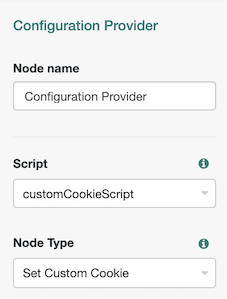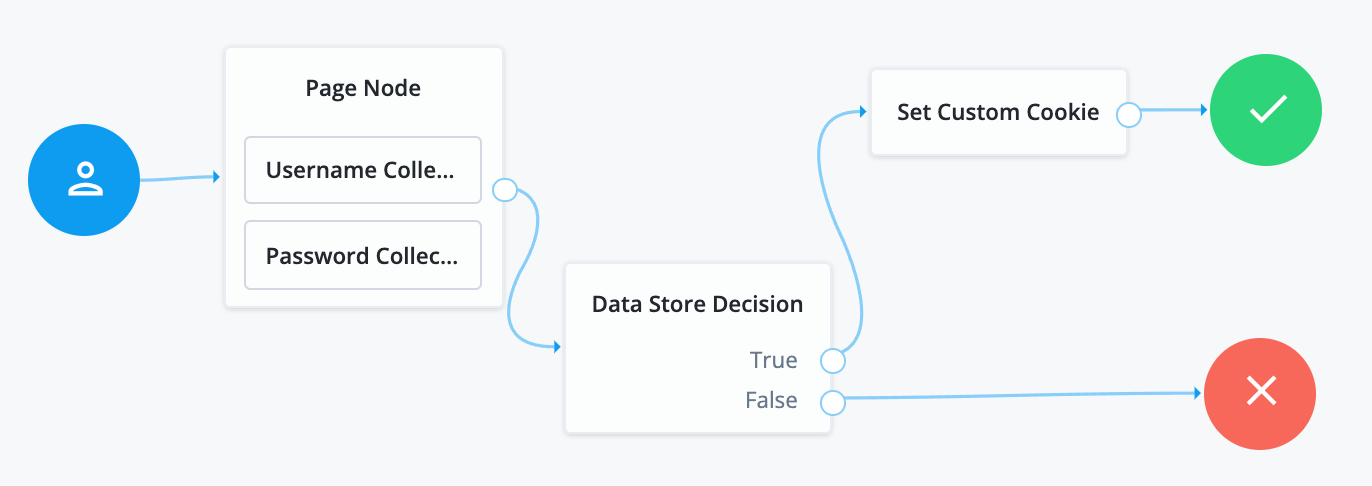Set Custom Cookie node
The Set Custom Cookie node lets you store a custom cookie on the client in addition to the session cookie.
The node uses the specified properties to create a cookie with a custom name and value. It can also set attributes, such as the cookie path, domain, expiry, and security flags.
Use this node with the Configuration Provider node to extend custom capabilities.
For example, create a Config Provider script to set custom static values or access values from the shared node state.
Include all the attributes in the configuration provider script’s config map.
The following example sets the attributes of the custom cookie to static values:
config = {
"name": "testname",
"value": "testvalue",
"maxAge": "60",
"domain": "am.example.com",
"path": "/",
"useSecureCookie": false,
"useHttpOnlyCookie": false,
"sameSite": "LAX"
};Reference the script when you create a Configuration Provider node, and set the Node Type to Set Custom Cookie:

Availability
| Product | Available? |
|---|---|
PingOne Advanced Identity Cloud |
Yes |
PingAM (self-managed) |
Yes |
Ping Identity Platform (self-managed) |
Yes |
Inputs
This node reads the user data from the shared node state.
It requires a predecessor node that gathers the user data.
Configuration
| Property | Usage |
|---|---|
Custom Cookie Name (required) |
The name of the custom cookie. The cookie name can contain any US-ASCII characters except for:
space, tab, control, or a separator character ( |
Custom Cookie Value (required) |
The value of the custom cookie. |
Max Age |
The length of time the custom cookie remains valid, in seconds. If that time is exceeded, the cookie is no longer valid. AM sets the If omitted, the cookie expires at the end of the current session. The precise implementation of this is determined by the specific browser. Refer to RFC 6265 for details. |
Custom Cookie Domain |
The domain the custom cookie will be sent to.
If you specify a value here, AM sets a domain cookie.
For example, if you set this property to If you don’t set a value here, AM sets a host level cookie on the FQDN on which the client accessed AM.
For example, if the client accesses AM at |
Custom Cookie Path |
The path of the custom cookie. |
Use Secure Cookie |
When enabled, adds the If you include the |
Use HTTP Only Cookie |
When enabled, adds the If you include the |
Custom Cookie SameSite attribute |
Sets the The default value is Learn more in SameSite cookie rules. |
